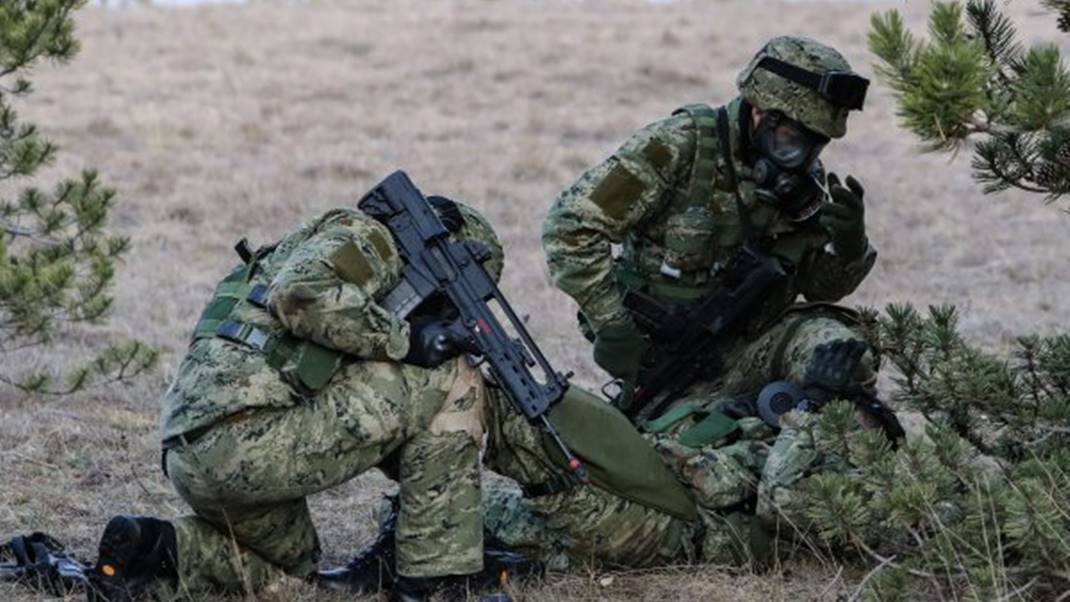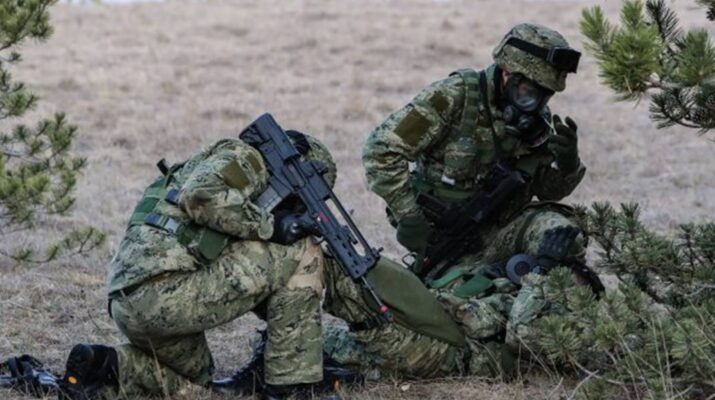THEY ARE NOT TOO HAPPY: There are more and more rumors about mandatory military service, this is how experts think

The idea of reintroducing military service in Croatia has once again found itself in the center of public interest after the announcement that the Ministry of Defense is working on the concept of some kind of military training, to which experts warn that this is a topic that requires a thorough analysis of defense needs and capacities.
Military service was abolished in Croatia in 2008 by a decision to suspend mandatory military service to professionalize the army and introduce voluntary military service.
Since then, the topic of re-introduction of military service has sporadically appeared in public, often on the eve of elections.
Slavko Barić, a lecturer at the Croatian Military Academy, believes that at this moment military service should not be the goal but the result of a deeper and broader analysis of defense policy and the security situation in which Croatia currently finds itself.
“In this discussion, I don’t see that the needs of the profession are being answered, but only of the public. We need to learn from other countries in the EU and NATO, which approach the issue more comprehensively and do targeted checks and analyses of security needs,” said Barić.
Military analyst Vlatko Cvrtila agrees with this and believes that before introducing any form of military service, Croatia needs a serious analysis and assessment of the defense and military capacities of the Croatian army, and then assess what type of military education we need.
“Here we are moving in an opposite direction, in which we first determine the education and only then decide what the outcomes of the education will be in terms of increasing our military capabilities,” explained Cvrtila.
Models of military service in Europe
Although the policy towards military service at the beginning of the millennium was the abolition of mandatory military service, in the last few years there has been an increase in countries considering the reintroduction of military service.
The topic began to come into focus again during the conflict between Russia and Ukraine, and after the conflict on the Crimean Peninsula in 2014, several countries started more comprehensive defense policies that included some forms of military service.
“As a rule, we see that the situation in international frameworks is developing and we see that it is getting complicated. A large number of countries are thinking about returning to military service or returning it completely. So, in this context, the renewal of the subject of military service is clear,” pointed out military analyst Marinko Ogorec.
Among the countries debating the reintroduction of military service, the Baltic and Scandinavian countries have made the most progress, reintroducing various forms of military training.
Barić believes that the Scandinavian countries represent a good model of a more comprehensive approach to defense policy. “Through the civil training system, they educate citizens so that they are ready for civil defense, and only in the next phase do they take a small percentage of people for education aimed at military skills and analysis,” explains Barić.
The defense system is not a matter of military service, but of defense planning and security preparation of the country, which means that there must be two elements – military preparation and civilian preparation of the population.
Cvrtila also gives a positive assessment of this model and emphasizes that the issue of military service itself must not be excluded from a more comprehensive approach to security and defense policy.
Capacities of the army and the state for military service
If Croatia were to start re-introducing military service, it is estimated that around 170 million euros would be allocated annually for this purpose.
Cvrtila maintains that there would be room for this in the budget, but experts believe that it is not only a matter of financing, but also of the way military service is implemented.
Ogorec believes that the army should be revitalized, stressing that it is necessary to think about the duration of the training itself if military service is introduced.
In his opinion, six months would be a good time for the participants to undergo training, partly specialized, and to learn to function in the system of defense needs.
The idea of potential courses lasting a month, which is one of the options that have appeared in public, is problematic for Cvrtila because he believes that Croatian citizens are facing risks that are not only a matter of the military but also of civil protection.
“What is certain is that we are daily surrounded by risks that are a consequence of climate change or human activity and the like, which threaten people’s health and the environment.
I am sure that the vast majority of people, not only those who would potentially be course participants, for example, adult high school students, have no idea that civil protection exists and do not know how our protection and rescue systems are organized,” warns Cvrtila.
He points out that civil protection is a mechanism that would offer young people the skills needed to reduce everyday risks.
“It is much broader than military capabilities, and perhaps it would be better to think about developing security policy at a much higher level than it is now,” concluded Cvrtila.
Barić also agrees with such conclusions, pointing out that the issue of personnel who would conduct military training is also important. He thinks that bringing in officers from the regular army to do training would be a disruption to the regular work of the army.
“Organizational, human, and material conditions need to be created to introduce something that is a serious response to the security challenges we are currently facing,” stressed Barić.
(TPortal)
Napomena o autorskim pravima: Dozvoljeno preuzimanje sadržaja isključivo uz navođenje linka prema stranici našeg portala sa koje je sadržaj preuzet. Stavovi izraženi u ovom tekstu autorovi su i ne odražavaju nužno uredničku politiku The Balkantimes Press.
Copyright Notice: It is allowed to download the content only by providing a link to the page of our portal from which the content was downloaded. The views expressed in this text are those of the authors and do not necessarily reflect the editorial policies of The Balkantimes Press.

